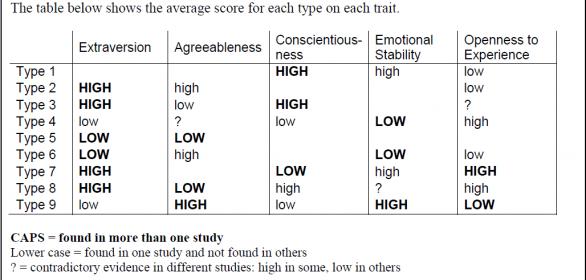- Joined
- Dec 23, 2009
- Messages
- 26,578
- MBTI Type
- INTJ
- Enneagram
- 6w5
- Instinctual Variant
- sx/sp
The major problem, as even [MENTION=8936]highlander[/MENTION] pointed before in another thread, is that Carl Jung (where MBTI and cognitive functions comes from) have sometimes a relatively confusing writing. Jung made clear that the pair of a judging function (J functions on Jung are Fi,Fe,Te and Ti) pairs with a perceiving function (P functions on Jung are Ne,Ni,Se,Si). However, he never made clear if the auxiliary function of an Introvert function is another introvert function or an extrovert one. Some people does the case through they are opposites, which is the popular vision on community, and some others gets the alternative one. I am fond of the widest one: It can be both, which is the literal interpretation. That means that a pair for Si can be either Fe,Fi,Te or Ti. So, ISFJ can be either Si-Fi or Si-Fe. Its not that I reject Si-Fe for ISFJ, but rather that I do read Si-Fi as ISFJ as well.
I had a look and pretty much ISFP for me. A ISFP that looks like a ISTP in the eye of others (low Fe means low emotion and perhaps feeling expression, which makes you appear as a Thinker to others).
Conscientiousness is related to Judging, you got low or mid scores. Even in some facets that were out of Conscientiousness but does somewhat relate perceiving, although in one or two you seemed like a J (that is ok, it is not that unusual to have a reverse preference or being a P with one or two J traits).
Openness to Experience is related to intuition, and you score on the sensor zone in general, although not on imagination.
The score for Introvert is clear.
The Feeling vs Thinking is more or less unclear because Big Five doesnt help much (Agreeableness is only weakly connected to feeling), but if you lead with Fi over Ti (since ISXP is clear), which makes you ISFP. Fi-Si ISFP instead of a Fi-Se one, but others might see you as ISTP because Fe is low and emotion/feeling expression is low as well.
The back of the functions are not that much reliable, specially here if we were to mirror Se-Fe that would make you Ti-Ni that is pretty much INTP. INTP goes completely against the Big Five results, which is unsurprising because typing using the cognitive functions on the back doesnt usually works well (the inferior function might be useful sometimes for deciding one or another dichotomy, though).
However, you seem highly neurotic. The image were cut, but neuroticism is imminently higher than 70. This makes you go to what the community calls "shadow mode", and that makes pretty much J/P and T/F to doubt. There is not much you can do about it unless find a way to reduce neuroticism and that comes at a very hard, or, sometimes, it is environment related. So, for the moment, you are more like a Fi-Si ISFP, Fi-dom, Si-aux, but on long-term, you might be more like on a ISFP Fi-Si mode due to neuroticism rather than actually being Fi-Si ISFP (so, no auxiliary Se). The high Fi, high Si, low Se, low Fe unusual pattern might be caused by high Neuroticism. Ah, it is useful for you to monitor your results over time. Because I had hypothesized that Fi-Si might be a ISFP/INFP in transition to ISTJ, but that transition is supposed to be so slow that it should take years.
Enneagram is another story, but using the Big Five results, type 6 is the best match, 4 is ok but not that good match (due to Openness to Experience). Disregarding Neuroticism/Emotional Stability, type 9 is a good match.

This is a fascinating analysis. I'd very much like to learn more about the correlations you mention.










